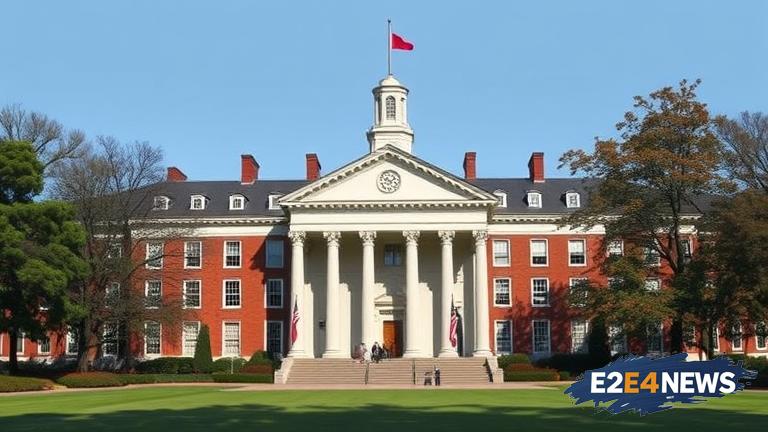Harvard University, one of the most prestigious institutions of higher learning in the United States, is currently embroiled in a high-stakes lawsuit against the Trump administration. The lawsuit, which is valued at $2.6 billion, centers around a dispute related to the university’s endowment and tax policies. According to reports, the university is challenging a new tax policy introduced by the Trump administration, which it claims unfairly targets the university’s endowment. The policy in question, known as the ‘endowment tax,’ was introduced as part of the Tax Cuts and Jobs Act of 2017. The tax is levied on private colleges and universities with large endowments, and is intended to generate revenue for the federal government. However, Harvard University claims that the tax is unconstitutional and unfairly targets the university’s ability to fund its academic programs and research initiatives. The university argues that the tax will have a devastating impact on its ability to provide financial aid to students and support its faculty and staff. In addition to the endowment tax, the lawsuit also challenges other aspects of the Trump administration’s tax policies, including the treatment of foreign investments and the taxation of certain types of income. The lawsuit is being closely watched by other universities and colleges across the United States, as it has the potential to set a precedent for how the federal government taxes institutions of higher learning. The case is currently pending in federal court, where a judge will ultimately decide the outcome. Harvard University is being represented by a team of high-powered lawyers, who are arguing that the tax policies introduced by the Trump administration are unfair and discriminatory. The Trump administration, on the other hand, is arguing that the tax policies are necessary to generate revenue and ensure that wealthy institutions like Harvard University are contributing their fair share to the federal government. The lawsuit has sparked a heated debate about the role of taxation in funding higher education, with some arguing that the tax policies introduced by the Trump administration are necessary to ensure that universities are using their resources efficiently. Others, however, argue that the tax policies are unfair and will have a devastating impact on the ability of universities to provide high-quality education and research opportunities. As the case moves forward, it is likely to have significant implications for the future of higher education in the United States. The outcome of the lawsuit will be closely watched by universities and colleges across the country, as it has the potential to set a precedent for how the federal government taxes institutions of higher learning. In the meantime, Harvard University is continuing to argue that the tax policies introduced by the Trump administration are unfair and discriminatory, and is seeking to have them overturned. The university is also seeking compensation for the damages it claims to have suffered as a result of the tax policies. The case is a complex and high-stakes dispute that has the potential to have far-reaching implications for the future of higher education in the United States.
